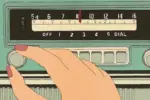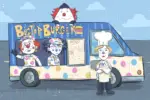Through the powers of YouTube’s algorithm, I discovered Chris Mann while I was browsing for videos to watch one day. And that was it for me — game over. I couldn’t stop replaying his recent songs inspired by the quarantine.
In 2012, Mann became widely known for participating in the televised singing competition “The Voice” and came in fourth place, representing Christina Aguilera in the final round.
In the same year, he released his debut studio album, “Roads,” which rose to No. 1 on Top Heatseekers and No. 172 on U.S. Billboard 200. His following album “Constellation,” also topped the charts. In 2015, he was cast for the lead role of the phantom in the “Phantom of the Opera” 25th Anniversary Tour for two years.
Mann also has his own YouTube channel where he uploads his covers and original songs for his large following of over 149,000. This year, he uploaded five parodies inspired by the pandemic.
“My Corona”
Mann released the music video “My Corona” in March 2020, which now has over 5 million views. It’s a parody of The Knack’s famous single, “My Sharona,” turning a love song about a young woman named Sharona to a track dedicated to the COVID-19 pandemic-induced paranoia and anxiety. It’s neurotic and catchy.
Keeping true to the original music video, which was performed in a white room, Mann performed his video in front of a white wall in his bathroom. It’s fitting for a parody that opens with “I need toilet paper, toilet paper, toilet paper.” I must admit that the line has been stuck in my head ever since.
“Stay Home Vogue”
Mann’s “Stay Home Vogue” is a parody of Madonna’s song “Vogue.” Shot in a monochromatic tone, the video maintains the stylistic choices of the original song as Mann strikes model poses throughout. While Madonna’s song was inspired by the modern house dance called “voguing” — which originated from New York’s drag ballroom scenes in the 1980s — Mann’s own version focuses more on posing for the camera and using props.
However, he successfully captures the glamour seen in both voguing and Madonna’s song. For example, he holds a pair of house keys to his ear as an imitation of earrings and as a symbol of home.
Released in mid-March, Mann used the song and his platform to urge people to stay home with his #stayhomevogue challenge.
“Hello (from the Inside)”
Mann has been dreaming about going out to eat cheeseburgers. What about you?
“Hello (from the Inside)” is a parody of Adele’s song “Hello,” with the song title being a play on words of the original lyric “Hello from the other side.” It’s a hilarious rendition that highlights the helplessness and cabin fever that many people feel with the stay-at-home order.
Mann continues to play with the song title by filming the video through a windowpane, highlighting the divide between himself and the outside. While the original music video was shot in sepia, “Hello (from the Inside)” was shot in color with cool blue tones overlaying it. Despite the difference, the editing and the lyrics express the message of nostalgia from Adele’s song.
Out of all of his parodies, this song is my favorite. Adele’s song has always been one of my favorites, and this ballad truly expresses the general population’s feelings beyond memes.
“Bored as Hell”
How are you feeling stuck at home? Bored as hell?
Parodying Lizzo’s song “Good as Hell,” Mann released “Bored as Hell” in early April, which now has over 460,000 views. The original Lizzo track empowers women to be confident as they prepare for a night out; Hanif Abdurraqib from NPR commented that the conversation between Lizzo and the choir is a reminder of solidarity: “The collective hair toss is a shaking off of weight, emotional or mental, the action that allows a recontextualizing of the self before the night ahead calls to us.”
Mann takes the celebrated rituals of hair care and nail care in “Good as Hell” and shows how they can become mundane. Trimming split ends. Cutting nails to the quick. What have you been doing in boredom?
Perhaps his version can be seen as an answer to the inability to go out and let loose. Unlike the women in the original music video, Mann represents how we’re confined — spatially, mentally and emotionally.
While “Good as Hell” represents solidarity among women of color, “Bored as Hell” represents the solidarity in monotony. After all, misery loves company.
“Thank U Frontline”
Despite the boredom that we may feel, we shouldn’t forget about the essential workers who are required to continue working.
In early April, Mann released “Thank U Frontline” — a parody of Alanis Morisette’s song “Thank U” — as a serious message of gratitude to frontline workers. “All jokes aside, it’s time to thank the brave men and women working on the frontline to help save us all,” wrote Mann in the description.
For Alanis Morisette, the song “Thank U” came from her gratitude and her newfound sense of inner peace after spending time in India. She rose to fame with her album “Jagged Little Pill”; however, the tour for the album led to burnout and disillusionment about her career. “I stopped for the first time and I was overcome with a huge sense of compassion for myself first, and then naturally that translated into my feelings and compassion for everyone around me,” she said.
“Thank U” has a beautiful music composition that carries over in Mann’s version, “Thank U Frontline.” The introductory piano chords truly set the mood for the song. Instead of repeating the chorus word for word, he uses it to thank as many people as he can. With each “thank you” sung, the music video pans to photos and video clips of these frontline workers.
It’s emotionally heartbreaking. I feel choked up every time I watch the music video, especially as more frontline workers are dying from COVID-19.
Final Thoughts
Chris Mann recreated classic songs in a stunning fashion with his vocals, his lyrics and his video production. If you haven’t discovered these parodies, then I definitely recommend that you watch them. Which parody is your favorite?

















